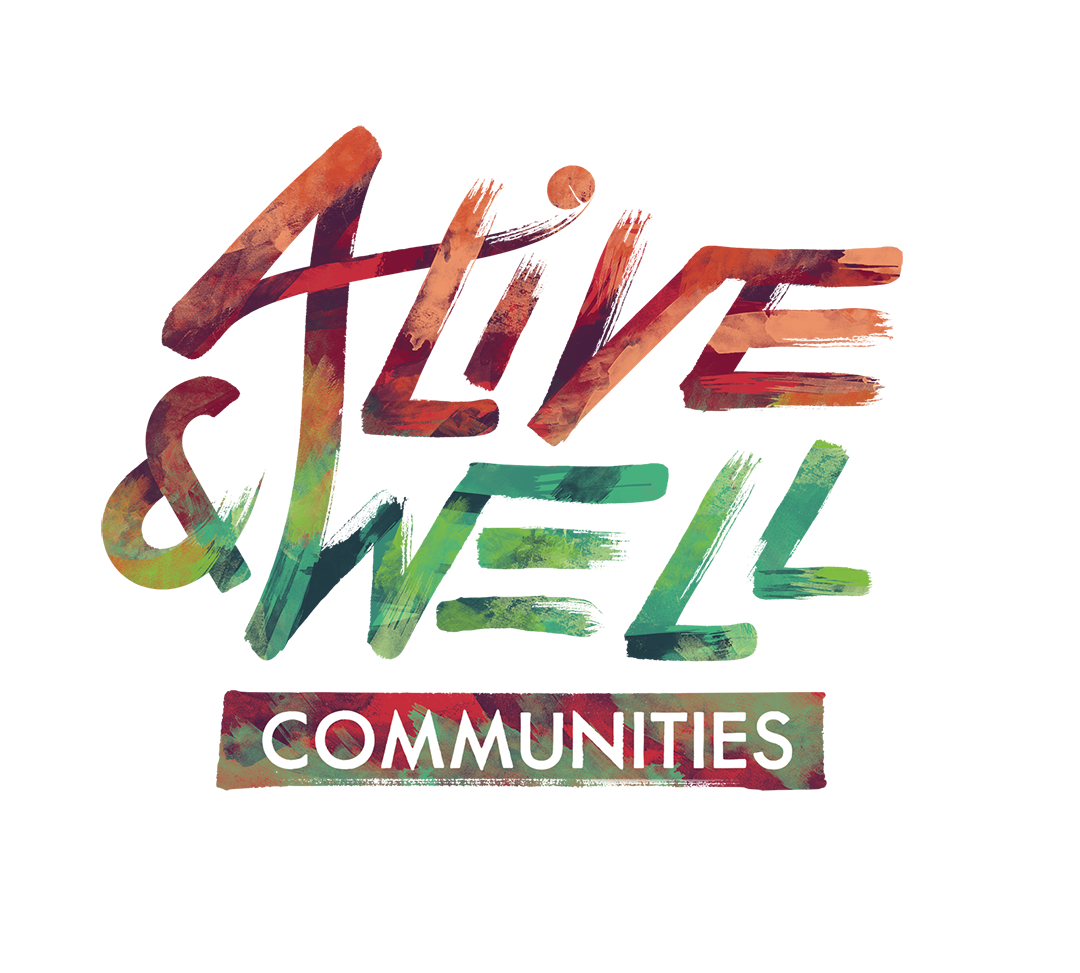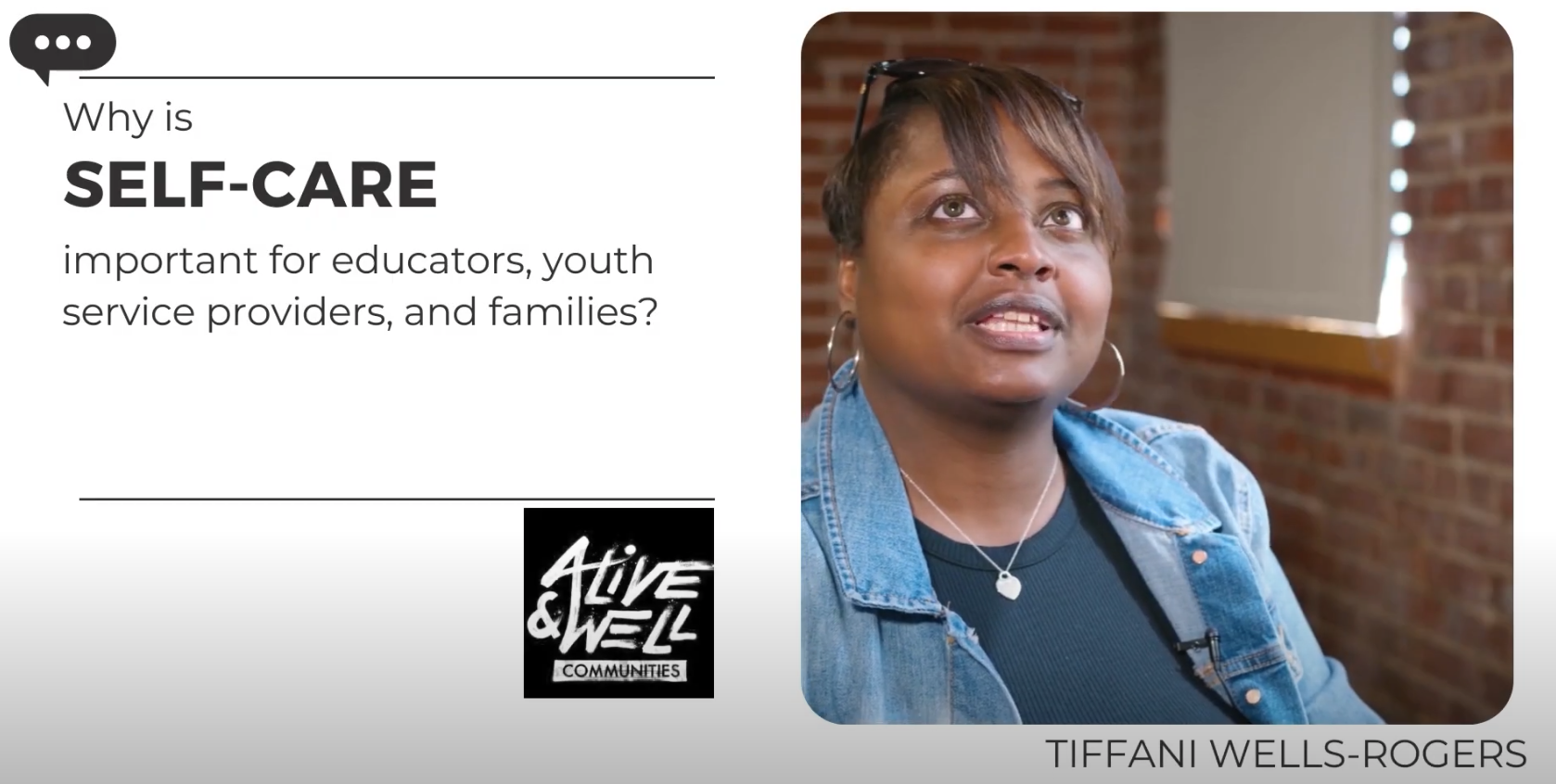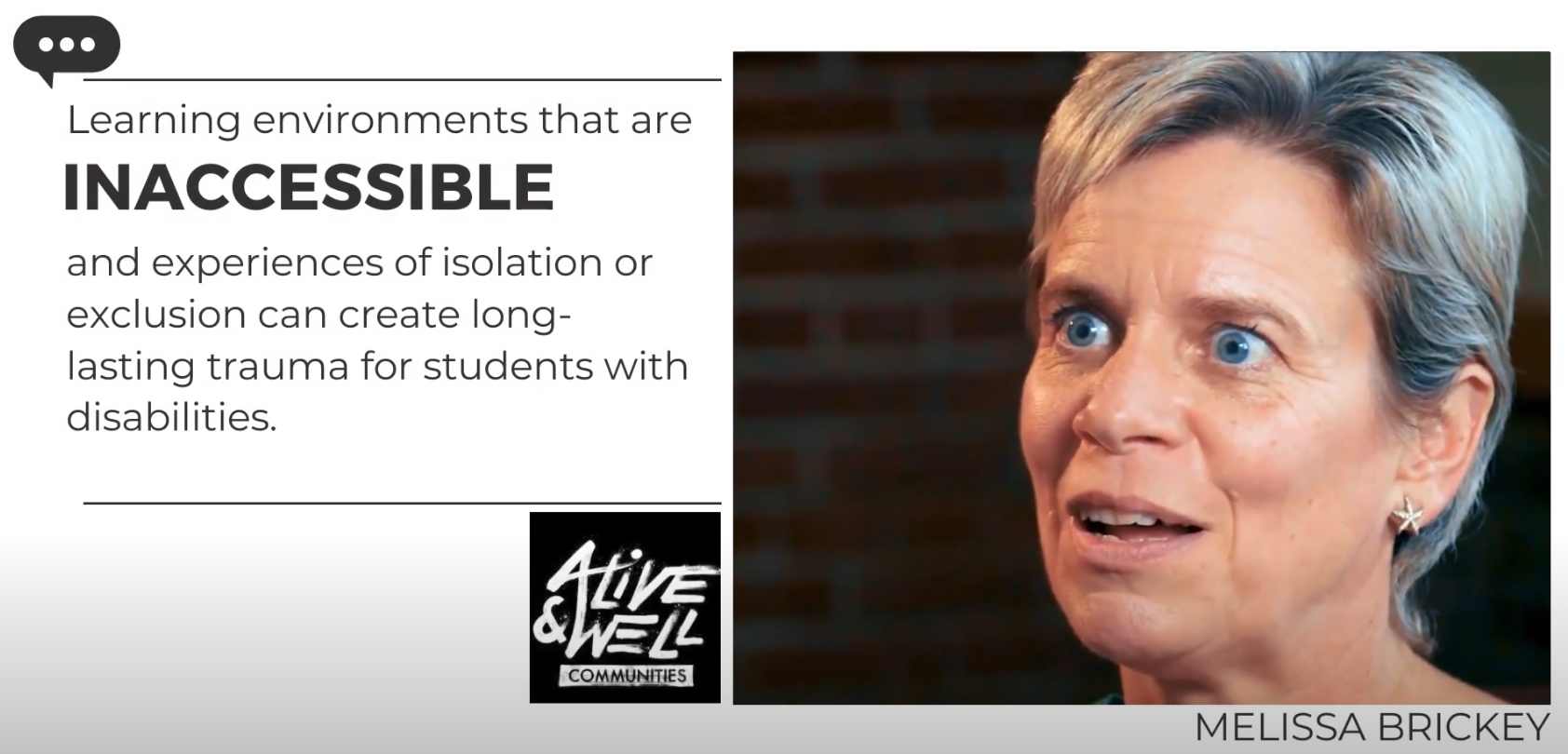TOOLKIT FOR SERVING LEARNERS WITH DISABILITIES
For educators and youth service providers
In partnership with the Missouri Developmental Disabilities Council, Alive & Well Communities wants to support you in increasing your capacity to take a trauma-informed approach to serving students with intellectual and developmental disabilities (IDD). This toolkit is not meant to be all inclusive; rather it is designed to equip you with background information and resources to begin or continue along your journey of becoming trauma informed. It offers ideas for how individuals can change the way they engage directly with learners and a framework for changes in policies and practices at the school or program level.
This toolkit takes a strengths-based perspective, viewing disability as an important part of a person’s identity, not as a barrier or an obstacle. It supports educators and youth-serving professionals in understanding each student’s unique needs instead of making assumptions about what students need based on their identities.
This toolkit was developed with a racial equity lens. It recognizes intersectionality and reflects the understanding that identity is not one-dimensional. Students with disabilities carry many other identities with them: they may also be Black, indigenous, or students of color, and they may be gay, queer or transgender. They come from a variety of religious backgrounds, speak different languages at home, and have different family compositions and access to wealth. All students have different challenges and strengths that interact to determine their unique life experiences. It is important to see and value students as their full selves.
Too often, English learners who live with disabilities are forgotten and their unique experiences are ignored. This toolkit keeps English learners with disabilities at the forefront. In addressing the intersecting identities of English learners with disabilities, this toolkit uncovers an area of need that is often overlooked. The inclusion of English learners is not an attempt to label learning English as a disability; rather, it is an effort to highlight unique points of consideration for educators and youth service providers when serving English learners with disabilities.
Ultimately, this work to support educators and youth-serving professionals in serving youth with disabilities, specifically English learners, proves that taking the extra step to understand each student’s unique story and meet each student’s unique needs serves all students, not just those with disabilities or those who are English learners.
Funding for Trauma Informed Schools Project provided by the Missouri Developmental Disabilities Council (MODDC), Grants #1801MOBSDD Seq. No.: 2018 / 4, #1901MOSCDD-02, and #2001MOSCDD-02, as authorized by Public Law 106-402 - Developmental Disabilities Assistance and Bill of Rights Act of 2000 (DD Act).
How to use this resource
This resource guide is designed to support educators and youth service providers in serving students with intellectual and developmental disabilities, including English learners with disabilities. In these sections, you will find background information, links to resources, videos, and reflective questions to guide assessment and implementation in your school, program, or community. This resource guide can assist you in the process of building knowledge, developing new frameworks, and applying new approaches in your work with youth.
This toolkit is most effective when used in partnership with The Missouri Model for Trauma-Informed Schools, which provides language and guidance to support school communities along their journey to become trauma-informed. With foundational knowledge of the stages of the Missouri Model and principles of trauma-informed care, educators and youth service providers may be able jumpstart their application of considerations for students with disabilities, including English learners.
It is critical for educators and youth service providers to engage with parents and caregivers as partners in their work to serve youth with disabilities. Parents and caregivers know their children best and have invaluable information about their needs, strengths, interests, and experiences. Working to build trust with families will promote continuity between schools, programs, and home environments. Though this toolkit is geared toward educators and youth-serving professionals, parents and caregivers may find the information useful as well. A separate section at the end includes resources with families in mind. The Missouri Model for Trauma-Informed Schools: Parent and Caregiver Resource Guide may offer a good starting point for families on the impact of trauma and building trauma-informed schools.
What does this resource include?
It is impossible for one resource guide to include all the information you may need to support your students. This resource guide will include information about:
Trauma and toxic stress;
The prevalence of trauma among those with intellectual and developmental disabilities, including English learners;
The role that social devaluation can play in traumatizing individuals with disabilities;
COVID-19 as a community trauma and its impact on youth with disabilities, including English learners;
How to incorporate social role valorization and other theories as trauma-informed strategies; and
How to apply principles of trauma-informed care to serve youth with intellectual and developmental disabilities, including English learners.
Get started
Watch the video playlists below and download their corresponding documents to start utilizing the toolkit.
Resources for COVID-19
The COVID-19 pandemic has had a disproportionate impact on the disability community broadly, specifically those who have other marginalized identities. COVID-19 illuminates the existing inequities in communities across Missouri. Gaps in the social service infrastructure have deepened racialized patterns of disparity. COVID-19 has highlighted a variety of challenges families face, including differences in access to health care and technology, and housing and food security—all of which affect how students show up to school. In developing your implementation plan, it is important to keep the context of COVID-19 in mind and integrate approaches that recognize this community trauma and its impacts. These resources provide a place to start as you apply the trauma lens in your work to serve students with disabilities, including English learners.
Get mental health support
It is also important to know that nothing in this toolkit is a substitute for mental health support from a professional. If you are concerned about a student and think they may need professional help, it is critical to reach out to get them the services they need. As an educator or youth-serving professional, you may be under increased stress or you may be triggered as you are working with students. Getting the professional help you need as you are supporting students will ensure that you are able to show up fully for your students.
There can be a stigma attached to seeking mental health support, and some individuals find it challenging to identify culturally competent therapists. The Alive & Well Communities’ “Finding Support” webpage offers tips and resources for finding a therapist. For additional resources for immigrant and refugee families, search the Inclusive Therapists webpage and the Coalition for Immigrant Mental Health webpage.








